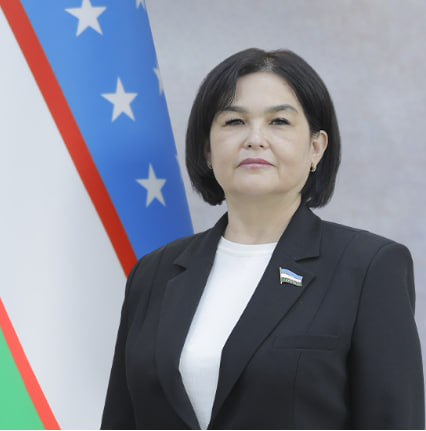Phone
Consular Issues
Phone
Embassy messages

Food security in Uzbekistan begins with support for agricultural producers
Starting January 1, 2026, Value-Added Tax will be exempted for Farmers and Dehkan producers
С 1
Almost half of the population of the Republic of Uzbekistan lives in rural areas. Millions of hardworking individuals in these communities play a crucial role in ensuring the country’s food security and establishing a solid foundation for the export of agricultural products. The nation’s development cannot be limited solely to urban centers; it is equally important to ensure that life in rural and peripheral regions is comfortable and sustainable.
The care for rural residents and the stimulation of their activities merit special attention from both the state and society. Governmental support measures have become pivotal in strengthening the agricultural sector.
However, the agricultural industry still faces significant challenges, including high tax burdens and limited access to financing, which contribute to the expansion of the informal economy. According to various estimates, up to half of agricultural producers operate outside the legal framework, resulting in reduced profitability and hindering sectoral development. Without genuine incentives to transition towards a formal economy, the agrarian sector’s capacity for investment and modernization will remain constrained.
In this context, the introduction of a zero rate of Value Added Tax (VAT) starting January 1, 2026, for farmers and dehkan producers selling their own products—including vegetables, fruits, meat, milk, eggs, and other food items—is a timely and significant measure. Producers of grain and cotton are excluded from this provision, as these sectors are regulated through state-managed clusters.
The existing practice of VAT refunds on expenses related to the production of seeds, fertilizers, fuel, logistics, electricity, and other operational costs will remain in place. As a result, farmers are expected to save up to 700 billion Uzbek soms annually.
The zero VAT rate will reduce the tax burden, increase farmers’ net income, and enable the allocation of additional funds toward modernization.
According to projections, farm profitability is expected to rise from 5–7 percent to approximately 15 percent. This measure will also facilitate more accurate planning of subsidies and incentives.
Another positive impact will be the growth of domestic processing industries. When products are processed locally, demand for investment in processing facilities and export logistics chains increases, leading to job creation and improved working conditions.
The reorientation of agriculture towards food crops has been one of the strategic priorities pursued in recent years.
Areas allocated to cotton and grain cultivation are being reduced, while orchards, vineyards, and vegetable crops are being developed instead. Approximately 1,500 food production projects have already been implemented, with a total investment of around one billion dollars.
The introduction of a zero VAT rate will further stimulate processing and export activities, strengthening the potential of the agro-food sector and enhancing the competitiveness and attractiveness of its products on the international market.
For farmers and dehkans, this presents an opportunity to retain a significant portion of their income. The savings can be directed towards farm development, improving working and living conditions, and modernizing production processes. Rural areas will benefit from job creation, technology influx, higher product quality, and a favorable environment for sustainable development.
For the state, this translates into a reduction of the shadow economy, increased transparency in reporting, and more accurate planning of support measures, tax incentives, and development programs. For society at large, it means access to higher quality and more affordable food products, enhanced resilience of the rural economy, and the strengthening of domestic agro-industrial value chains.
Nadira RASHIDOVA,
Member of the Legislative Chamber of the Oliy Majlis.













